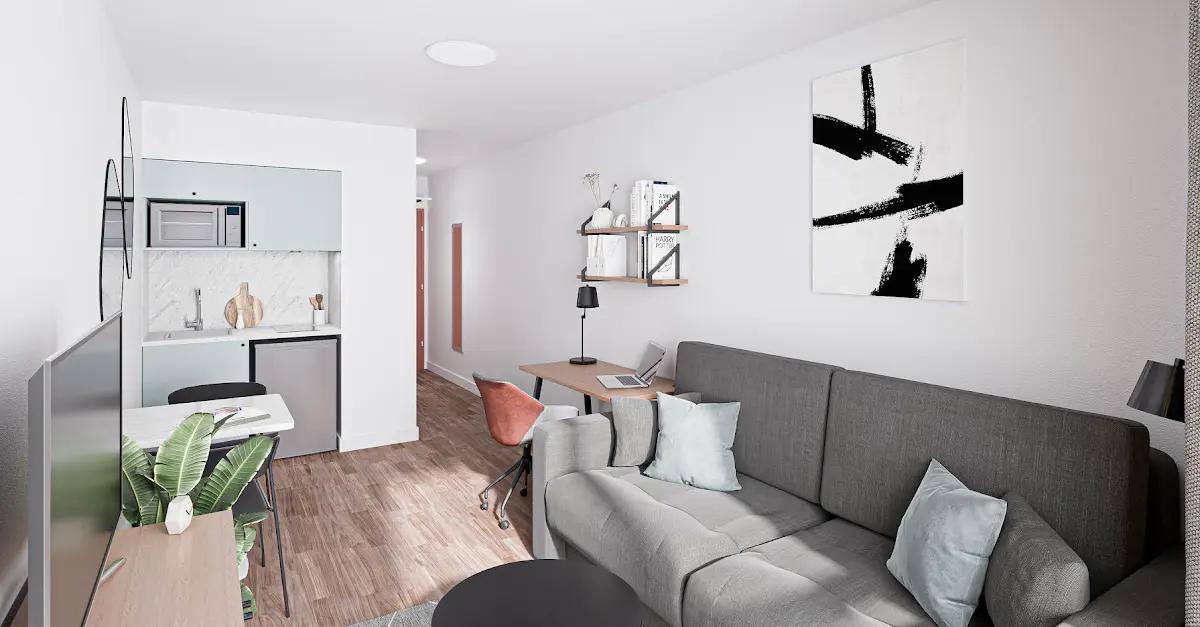Finding Your Ideal Apartment: A Step-by-Step Guide for Renters
Searching for the perfect apartment can feel overwhelming, but a structured approach ensures you make informed decisions.

1. Assessing Needs and Budget
Start by clarifying your priorities:
-
Space: How many bedrooms and bathrooms do you need? Is a home office or outdoor area essential?
-
Location: Prioritize proximity to work, schools, or public transit. Urban centers often mean higher rents but shorter commutes.
-
Amenities: Consider must-haves like in-unit laundry, parking, gym access, or pet-friendly policies.
Next, set a realistic budget. Experts recommend allocating no more than 30% of your monthly income to rent. Don’t forget to factor in utilities (electricity, water, internet), parking fees, or potential move-in costs like security deposits.
2. Exploring Neighborhoods
A neighborhood’s vibe and functionality significantly impact your quality of life. Research areas that align with your lifestyle:
-
Safety: Check crime statistics via platforms like NeighborhoodScout or local police department reports.
-
Convenience: Look for nearby grocery stores, pharmacies, parks, and public transportation.
-
Future Development: Upcoming infrastructure projects (e.g., new transit lines) could affect noise levels or property values.
Visit neighborhoods at different times to gauge traffic, noise, and community atmosphere. Online forums (e.g., Reddit’s local subreddits) or talking to current residents can provide insider insights.
3. Comparing Options and Weighing Trade-offs
Create a shortlist of apartments and evaluate their pros and cons:
- Cost vs. Value: Does the rent justify the amenities and location?
- Condition: Are appliances modern? Is maintenance responsive?
- Flexibility: Are short-term leases or subletting allowed?
- Reviews: What do current/past tenants say about management?
For example, a newer building might offer sleek finishes but lack character, while an older unit could provide charm but require compromises on energy efficiency.
4. Understanding Lease Terms
Before signing, scrutinize the lease agreement:
-
Duration: Most leases are 12 months, but some landlords offer month-to-month options at a premium.
-
Deposits: Security deposits typically equal one month’s rent. Clarify conditions for refunds.
-
Policies: Note rules on pets, subletting, guest stays, and penalties for breaking the lease.
-
Maintenance: Confirm how repairs are handled and emergency contact procedures.
If terms feel unclear, ask for clarification or consult a legal advisor. Never sign a lease without reading it thoroughly.
Conclusion
Finding the right apartment requires patience and research. By defining your needs, exploring neighborhoods, comparing trade-offs, and understanding lease details, you’ll secure a space that fits your lifestyle and budget. Remember, a well-informed choice today leads to long-term satisfaction.
Ready to start your search? Reach out to local real estate agents or browse trusted rental platforms like Zillow or Apartments.com for updated listings. Happy apartment hunting!
Hot Articles

Break Barriers to Homeownership: No Down Payment, No-Income Verification Mortgages Available Now!

Unlocking Affordable 1-3 Bedroom Apartment Options

Secure Your American Education: 90% More Scholarships Available – Apply for Free Today!

El análisis de datos en la era digital: cómo transforma nuestra vida y decisiones